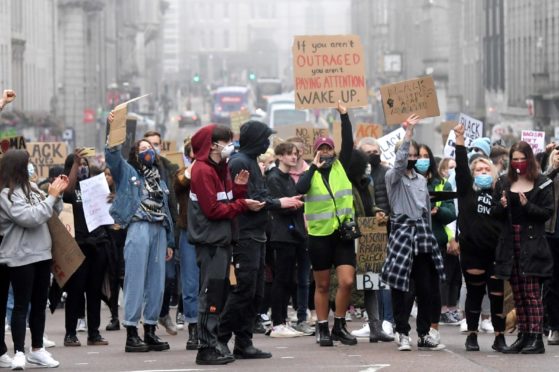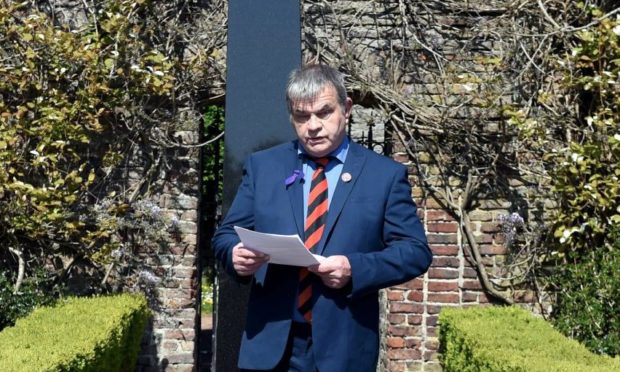Trade union leaders have urged every north-east MP to oppose a controversial policing bill making its way through parliament.
New legislation, the Policing, Crime, Sentencing and Courts Bill, is proposed by the UK Government.
It would give police in England and Wales more powers to crack down on protests, including imposing start and finish times as well as setting noise limits.
They will also be able to apply the rules to demonstrations consisting of just one person.
If the bill is passed, it could lead to large fines or even prison sentences for those taking part in protests.
The bill includes the offence of “intentionally or recklessly causing public nuisance”, designed to stop people chaining themselves to fences, hanging off bridges or other similar acts.
Opponents of the bill have held a number of protests in cities across the UK.
Now trade union chiefs in Aberdeen have urged each of the north-east’s MPs to oppose the legislation, citing concerns it could lead to an erosion of “democratic, civil and human rights”.
In a letter, Graeme Farquhar, the president of the Aberdeen Trades Union Council (ATUC), added it could have a knock-on effect on policing in Scotland.
“ATUC reject the UK Government’s plans to further restrict our freedoms, because the proposed new law would impose restraints on our right to peacefully protest anywhere in the UK,” he added.
“The powers which would be introduced by the bill represent a significant step back from our democratic, civil and human rights and could have irreversible consequences for political opposition to the UK Government and for peaceful vigils and protest marches.
“The proposed new powers to be given to the police may lead to the increasing militarisation of the police in England, and could theoretically spill over to devolved police forces.
“The rights and freedoms we enjoy today are the product of previous peaceful industrial struggle and citizens project over the past two hundred years – from the mass trespass of Kinder Scout in support of the right to roam, to the miners’ and other industrial strikes, anti-war and international solidarity protests and demonstrations, including the recent demonstrations against violence against women and girls, and the Black Lives Matter protests in the USA, UK and elsewhere.
“The bill should not be seen in isolation. It forms part of a consistent UK Government strategy to increase the powers of the state by limiting democratic accountability.”

